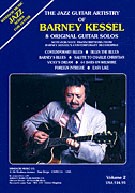

Nobody nobody played the piano like Dave Brubeck. They didn’t necessary look like college kids, but they looked like those that had just graduated from college. The appeal of the group of course was that they were different! They looked different. Both Dave and Paul were friendly, but Paul was more funky and Dave was more impersonal and friendly, and Paul you could talk about different things. I knew they were both there, I didn’t know who was who for four or five days. I just know it took me four or five days before I realized one was Paul or one was Dave. I had no notice if they were nervous or anything.

A lot of things happening, and we were just paying attention to everything.ĭo you remember when they showed up, do you remember if Brubeck was nervous or anything? I hadn’t heard any recordings of them, I’d read about them, I’d read Down Beat about this group on the West Coast, so I said you know, that was part of what was happening at the time, the new groups: Gerry Mulligan, Chet Baker. Yeah that was the first time I really heard their music, was in the club. You hadn’t listened to their albums before so when you heard them at your club, that was the first time that you were really hearing them? You didn’t listen to their records, so you didn’t know what they sounded like until they played at your club. So they came in, and well the rest is history in that respect. I hadn’t even listened to their records that much because they didn’t have that many records in 1952. That was my job, to present new things at my club, so there was a lot of talk about Dave and what he was doing and Paul Desmond, so I said “Give them a try”. Well, we were a part of an artificial group of clubs in the country (Philly, NY, LA) and jazz clubs that were trying to pay attention to what was happening and the name Dave Brubeck and some said it was interesting music. Why did you take a chance on this Brubeck group and if you were afraid that you might have made a mistake in booking them. You said that when they first got there, there weren’t many people but as they played, more people showed up. You have worked extensively with the Brubeck Quartet from its very earliest of days back in 1952, and I want to ask you about that, when you first worked with them in ’52 at the club. Well, its a pleasure to be talking to anybody for me, thank you. You are a hero of mine, and you figure large in the history of jazz, so it’s a pleasure to be talking to you. Me: I have to say it’s an honor and a pleasure to be talking to you. And with that, let’s jump into the first part of my conversation with the late great George Wein. Being that he died six months later, this is possibly the last interview he ever did. I found Wein to be a rather funny man, and at five years shy of 100, as sharp as ever. Our conversation was centered on Dave Brubeck and his quartet and Wein’s relationship with Brubeck. Luckily, I had the opportunity to talk with him over the phone only months earlier on March 9, 2021.

Wein passed away last year, September 13, 2021, at the age of 95. Their paths would cross numerous times after that, professionally and personally, for the next six decades until Brubeck passed away at the age of 91 in 2012. The lives of Brubeck and Wein intersected for the first time in early 1952, when the relatively unknown Dave Brubeck Quartet was booked by George Wein to appear at Storyville, Wein’s Boston nightclub. One of those notable figures was Dave Brubeck. In the course of his legendary career, Wein worked with almost every notable figure in jazz. Wein loomed large in the field of jazz and American culture. From opening a jazz club to starting the Newport Jazz Festival to briefly operating a jazz record label, Mr. Born in 1925, the man became a jazz fan early on, which, combined with his entrepreneurial spirit, would prove consequential. The late George Wein lived an incredible life. Little did I know how lucky I truly was, as he would be gone six months later. I knew that I was incredibly lucky and privileged to have been able to speak with him, and told him as much. Wein told me that he enjoyed talking about Dave Brubeck, and to call him again whenever I had anymore questions. After talking about this interview for a few months, the Raggy Waltz staff has finally gotten around to transcribing and editing it, and now presents the first of two posts of my conversation with Mr.


 0 kommentar(er)
0 kommentar(er)
